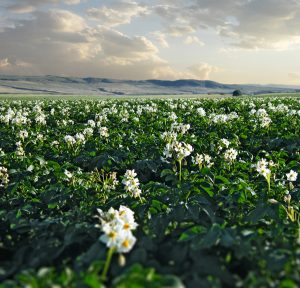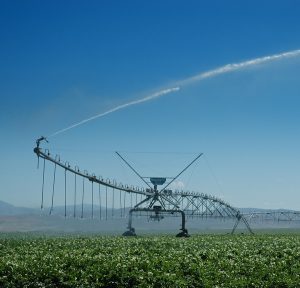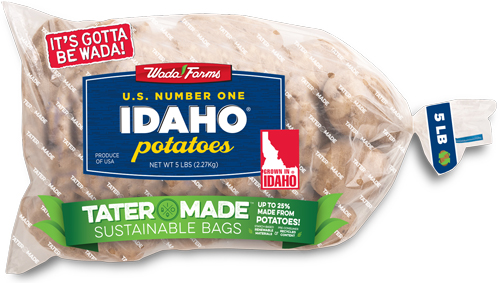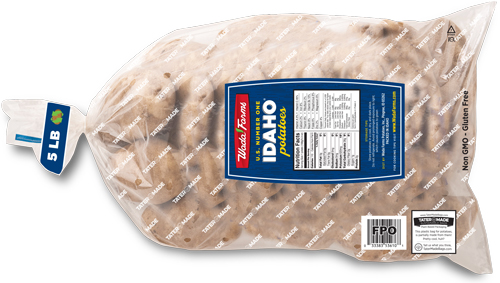SUSTAINABILITY
INTEGRATED INTO EVERY ASPECT OF OUR OPERATIONS
At Wada Farms, sustainability is more than just a philosophy – it motivates every part of our farming and packaging operations.
We employ sustainable farming through the wise use of land resources, water conservation and management, careful herbicide and pesticide applications, and beneficial soil-enriching crop rotation practices.
We are deeply committed to this vision, and feel confident that we are making agriculture strong, safe and sustainable both for today and generations to come.
Materiality
Wada Farms is located in the Upper Snake River Valley of Eastern Idaho. This area is home to high mountains, high desert valleys, clean air and clean water. Not only is this region recognized for its agriculture, it is also a vacation and recreation destination.
Maintaining the pristine environment for this area is key to the success of our farm and for future generations enjoying the quality of life available today. Through sustainability, we are addressing those issues that are material to our long-term viability and reduced overall impact.

Business Case for Sustainability
Clean air, clean water, healthy fertile soil, biodiversity, and a vibrant community are essential to the long-term viability of Wada Farms and its agricultural operations.
Sustainable management, goals and measurements allow us to define those issues material to our overall objective:
• Maintain the quality of the air, water, soil, and biodiversity
• Develop the most efficient use of our resources
• Increase our overall productivity, crop yield, and quality of produce
• Advance our community interactions
• Maintain a pristine, safe and healthy environment
Commitment to our Employees
Our employees are key to the success of Wada Farms, the quality of our produce, and the company reputation we enjoy. We are committed to providing them with a safe and healthy work environment.

Wise Land Use Practices
We employ farm management practices that maintain and improve the health and fertility of our soil, reduce soil erosion, and eliminate disease, contamination, and infestation. We employ crop rotation, improved cultivation and biodiversity land management.
Conservative Water Management Practices
We use scientific and historical evidence to identify the best and most efficient use of water on each crop we grow. Our goal is to maximize the quality and production of produce on our farms while we reduce or eliminate water waste, soil erosion and potential contamination to our water resources.
Careful Herbicide & Pesticide Application
We use scientific and historical evidence to identify the best and most efficient use of water on each crop we grow. Our goal is to maximize the quality and production of produce on our farms while we reduce or eliminate water waste, soil erosion and potential contamination to our water resources.
Efficient Energy Management
We have taken steps to reduce the amount of electricity used in irrigation and processing of our produce. As well, we frequently upgrade to more efficient machinery when appropriate, and train our operators in how to reduce energy consumption. We strive to become more energy efficient each year.
Community Involvement
In a rural setting, operations like ours have a major economic impact. We have a responsibility to provide social benefit to the community, and actively participate in volunteer commitments and support local interests.

Tater Made Bags
Our Tater Made sustainable bags from Biologiq are made from up to 25% post- consumer materials.
While Wada Farms is not a packaging company, our focus on finding sustainable solutions that reduce our carbon footprint has led us to the development and launch of a great new packaging alternative.
Our Tater Made sustainable bags from Biologiq are made from up to 25% post- consumer materials. The process converts post-consumer potato starch waste into resin pellets for making plastic potato bags.
That means 25% less non-renewable fossil fuel based materials and up to 25% more annually renewable, plant-based starch than traditional plastic bags. We think that’s a step in the right direction.



